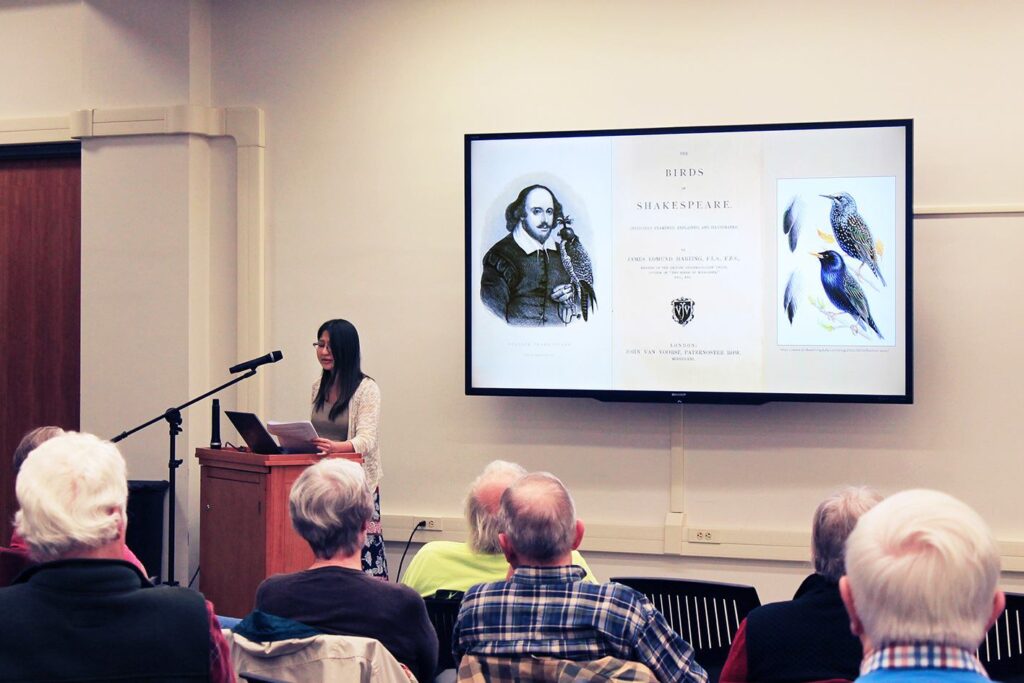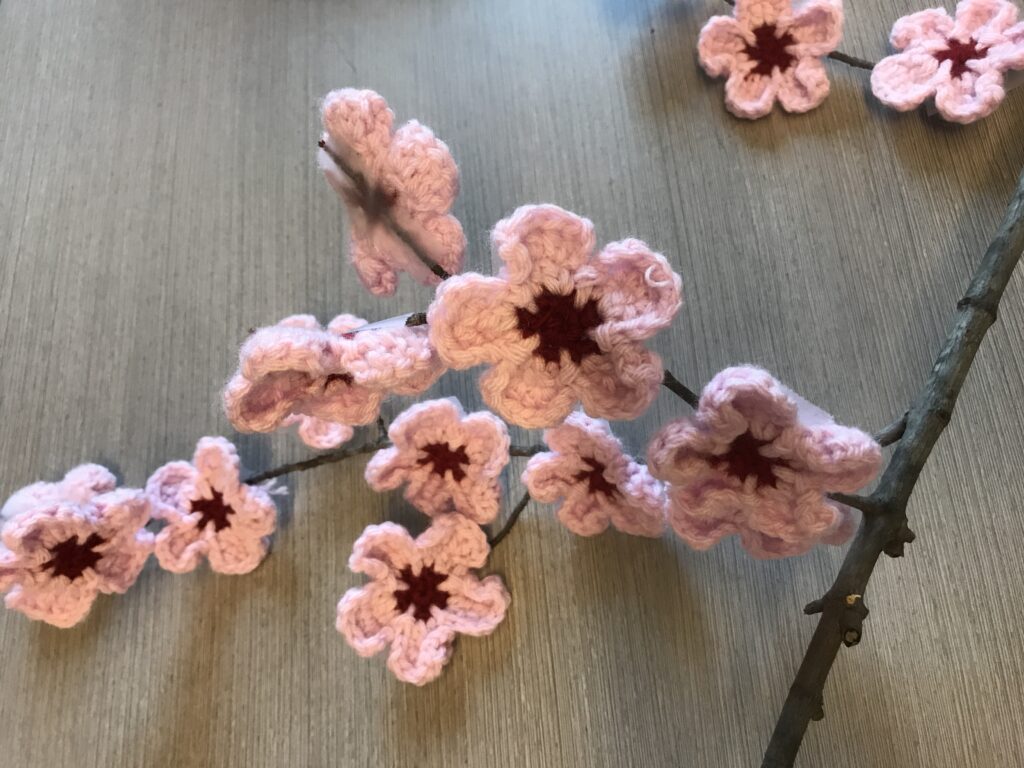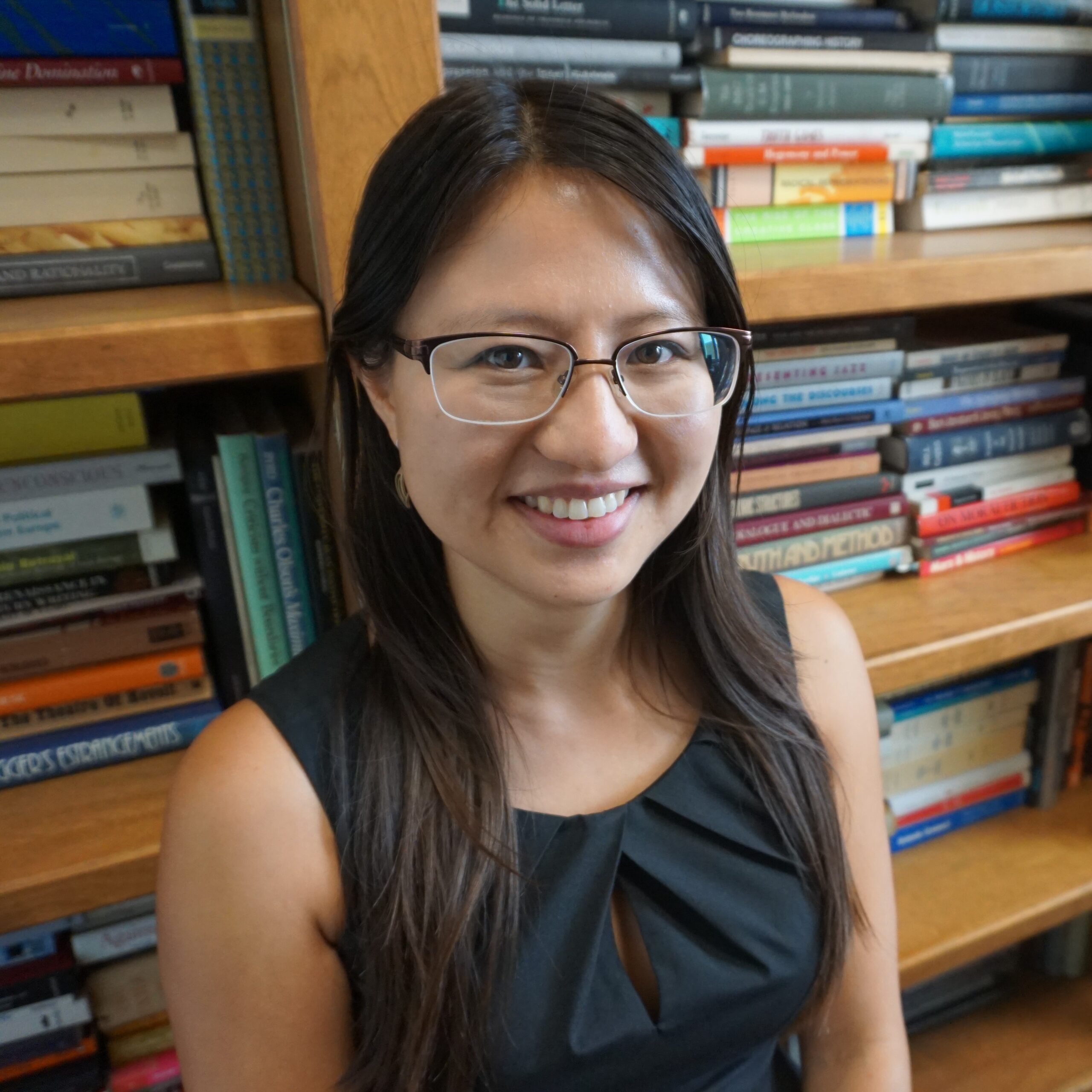
As a queer woman of color who has been privileged to build a career in higher education, I am committed to promoting accessibility and equity across the range of courses I teach. I invite students to interrogate their own perspectives and positionality, to do the essential work of undoing systemic oppression and advancing social justice, as part of the content and context of my courses.
As an environmental humanist, I always guide my students in practicing ethical inquiry-driven and research-based writing on local and global topics. I incorporate combinations of community engagement, field trips, and library research to train my students in diverse methods and modes.
What follows are course descriptions and student reflections excerpted from courses I regularly teach, along with a sample syllabus. If you’d like to access my full teaching philosophy, course materials, etc., please get in touch.
English 101: Composing Natural Wonders (Emory University)
This writing course invites students to develop skills in rhetoric, research, multimodal composition, and revision while exploring topics in the environmental humanities. Selected readings and media on ecological topics will range in genre from historical nature writing to contemporary science journalism. Students are encouraged to conduct local, sustainable primary research throughout the term and will have ample opportunity to write about the environmental topics they are most curious and passionate about.
“I expected this course to be really easy, and I was wrong. I am glad I was wrong. This experience has allowed me to grow as a writer in ways I didn’t know were possible. I now have skills in research and rhetoric that I’ll be able to use in the future with the addition of a better understanding of the world and nature.”
English 223: Rhetorical Grammar: Sentient Sentences (Emory University)
Focusing on the work that language can do in the real world, this course is less about mastering the “rules” of grammar and more about making strong choices to suit your purposes as a communicator. Through a study and analysis of grammar’s impact on rhetorical effectiveness, students work with their own writing as they learn to make and adapt grammatical choices to fit audience, purpose, constraints, exigencies, and timing.
“This class allowed me to feel comfortable in a space I should have felt comfortable in years ago. I would wholeheartedly recommend this class to any of my peers. Now that I think about it, I would gladly recommend this class to any student at Emory.”
“Professor Yang made this course truly wonderful. She broadened my thinking about the revision process tremendously, and I believe my writing improved significantly over the course of this semester…For those who are passionate about learning and put in the effort this class will be a true delight.”
English 380W: Bird by Bird: Writing With Animals
(Emory University, Spring 2020 Syllabus)
For centuries, writing with animals was the only way humans knew how to write; we penned tales with quills plucked from geese on calf-skin vellum and bound our books in leather. In the years since, our writing technologies and relationships with animals have both evolved. This writing-intensive seminar invites students to investigate intertwined histories and narratives of writing and animals through texts, field trips, and research-based critical and creative writing and multimodal composing.
“I expected the class to be a fun way to stay close to animals and learn more about them. Though this expectation was fulfilled, this class ended up being so much more than that. One of the biggest things this class has done for me is that I now take my writing process more seriously…”
“I feel very content with every single aspect of this class…I always was a shy writer and never enjoyed reading my own work. I gained that confidence through your class…”
Written Professional Communication/Professional Writing*
In this writing-intensive and participation-driven course, we will collaboratively examine the contexts for and rhetorical dimensions of a range of professional documents, primarily, those you produce throughout the semester. Major assignments include a set of career materials, a research report, and a multimodal passion project profiling a profession of your choice. As we engage in this work, we will explore the nature of professionalism and strategies for producing ethical, effective, and efficient professional writing across a range of fields.
“The instructor comes into the class with a wealth of knowledge. The experience in the field is clear. The instructor also attempted to provide the students with a breadth of experience and exposure to different types of professional writing, which I believe is crucial.”
*I initially taught this at the University of Pittsburgh as a 400-level course in the Public and Professional Writing Program. I updated and taught it at Emory as an English 380W topics course, and moving forward, it will be offered as a permanent 200-level course in our new Rhetoric, Writing, and Information Design minor.
English 200: Seminar in Composition (University of Pittsburgh)
This course invites students to play with ideas and words, interrogating everything from cultural constructions to sentence structure across digital and traditional platforms. Through writing workshops and exercises in style, you will revise (not just proofread!) your work with care, opening up possibilities for future directions of critical inquiry, and developing writing and thinking skills important to your college career and beyond.
“Professor Yang was great at stimulating discussion about how to approach assignments from a cultural point of view, thinking about linguistics, and thinking about assumptions we were making in our writing.”
English 610: Composing Digital Media: Multisensory Design (University of Pittsburgh)
Composing Digital Media (CDM) is a workshop-based forum for students to become immersed in critical-creative, multimodal making. In this section of CDM, we will design multimodal projects appealing to all of our senses. While the semester will be roughly organized around the five common senses – hearing, sight, touch, smell, and taste – we will ask questions of the divisions, and consider how all of the senses work together across the work that we do.
“As the semester ends, I am finding that I have learned so much about digital media and its different components just by taking this course. Beginning with the readings, I have found that there are so many different things to be thought of when considering each individual project.”
“…this course is an enjoyable and insightful learning experience that is very pertinent to today’s media and culture.”

Note: I ask my students for permission prior to sharing their work whenever possible. If you are a former student whose work appears here and you would prefer to have your materials differently credited, edited, or removed, please don’t hesitate to reach out.
